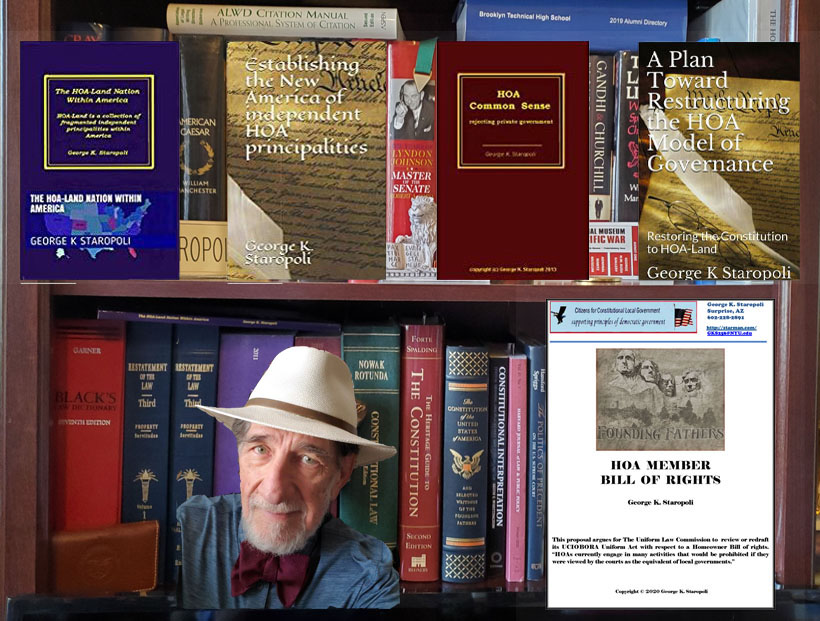A very disturbing 19-page California bill, AB 1033 (Ch. 752)[1], became law this week that extends HOA-Land with respect to Accessory Dwelling Units (ADU)[2]. The rationale seems to be to support low-income housing given the scarcity of California, and gain income for retired people as well. It allows the property owner to have a livable unit (ADU) on his property but requires the owner to form a two-person condo on what was his single-family property. The accessory unit can then be sold as a condo unit subject to the Davis-Stirling condo laws. Why, I ask???
In order to make this plan work a complicated series of amendments were added. In other words, a planning board, for instance, is given authority to allow this approach to housing, along with changes to building requirements, codes, etc.
The Legislative Digest states,
“This bill would, in addition, authorize a local agency to adopt a local ordinance to allow the separate conveyance of the primary dwelling unit and accessory dwelling unit or units as condominiums, as specified, and would make conforming changes. By imposing new duties on local governments with respect to the approval of accessory dwelling units, the bill would impose a state-mandated local program.”
To me, this seems like a lot of about nothing, unnecessarily complicating property rights and housing. BUT, extending the fragmented HOA-Land and further eroding adherence to the Constitution – more individual rulers functioning outside the Constitution. It goes beyond home rule laws and the medieval fiefdoms.[3] There is no oath of allegiance to support the Constitution as the supreme law of the land. And condos pay minimal taxes as a non-profit. So, what’s the story??
To paraphrase Jack and the Beanstalk, “Fee-fi-fo-fum, I smell the blood of a CAI man.” CAI-CLAC is the very powerful and highly active CAI legislative action committee (LAC) representing all CAI California chapters. And then there’s Echo,[4] whose membership structure duplicates the CAI membership structure.
Who says CAI is not a coercive monopoly?[5] Take a close look at California again. Are their any voices in support of homeowners to compete with CAI? No, sorry to say, although one group has had some influence on legislation but it does not stand close to the overall impact of CAI on events concerning HOA-Land.
NOTES
[1] Bill Text – AB-1033 California Family Rights Act: parent-in-law: small employer family leave mediation: pilot program.
[2] ADUs come in all shapes and sizes – for example, a converted garage, a small home in the backyard, or, as often seen in San Francisco, an unused portion of the main house.
[3] A fief was a central element in medieval contracts based on feudal law. It consisted of a form of property holding or other rights granted by an overlord to a vassal, who held it in fealty (oath to the lord) or “in fee” in return for a form of feudal allegiance, services, and/or payments.
[4] “Educational Community for Homeowners (Echo) is a nonprofit corporation dedicated to assisting California homeowners associations. Members receive guidance through live webinars, Members receive guidance through live webinars, virtual seminars and workshops.


